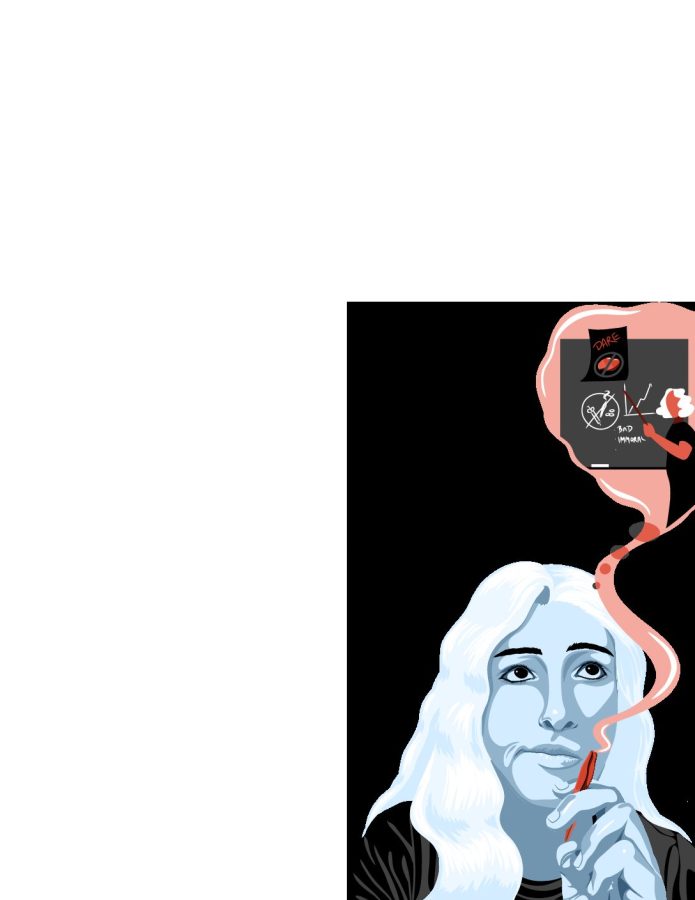America’s longest war was declared over 50 years ago, and according to research from the University of Pennsylvania, the government has spent over one trillion dollars on it, which also makes it our most expensive war. Unfortunately, it was a total waste of time and money, because the war on drugs has been outrageously unsuccessful.
“The global war on drugs has failed, with devastating consequences for individuals and societies around the world,” the report titled “War on Drugs” written by the Global Commission on Drug Policy” reads. “End the criminalization, marginalization and stigmatization of people who use drugs but who do no harm to others.”
Possibly the most damaging effect of the war on drugs was criminalization of drug use, which radically changed the general public’s opinions on drug users. Criminalization created a harmful culture of shame around illegal drug usage, which has prevented healthy conversations about addiction from occurring on a widespread scale.
The shame surrounding addiction discourages many addicts from seeking help for fear of judgement. Jillian O’Connell is a prevention specialist at FCD Prevention Works, an organization that visits schools to deliver seminars about addiction and prevention. O’Connell visited Trinity in January to educate students about addiction, and says that some of the most frequent obstacles to recovery are the lack of information about addiction and the shame surrounding drug use.
“For me, when I was in my active addiction, there was a sense of shame that came with it,” O’Connell said. “Logically, I know that this is not healthy for me, but it doesn’t feel like I have a choice anymore whether or not to use alcohol or other drugs.”
Trinity has started the conversation about addiction by bringing in representatives from FCD and including a drug curriculum in the required Health and Wellness class. This class is in part taught by physical education teacher Dee Starling, who explained the steps they are taking to start educating students about drug use and addiction.
“The entire [Health and Wellness] curriculum is about making good choices,” Starling said. “Addiction could possibly be a result of anyone that exposes themselves to drugs or alcohol. We do talk about that risk and that at that point, you may not be able to make the decision. Addiction is a disease that takes time and support to heal and conquer.”
However, for many addicts, support is nowhere to be found. A study conducted by the John Hopkins Bloomberg School of Public Health found that there is a societal bias against addicts, and that people tend to view addicts as failures who lack restraint when in actuality they are struggling with a serious disease. Associate professor in the Department of Health Policy and study leader Colleen L. Barry explains their findings in the published paper titled “Study: Public Feels More Negative Toward People With Drug Addiction Than Those With Mental Illness.”
“While drug addiction and mental illness are both chronic, treatable health conditions, the American public is more likely to think of addiction as a moral failing than a medical condition,” Barry said. “In recent years, it has become more socially acceptable to talk publicly about one’s struggles with mental illness. But with addiction, the feeling is that the addict is a bad or weak person, especially because much drug use is illegal.”
The solution to this societal bias would be conversations about addiction that can destigmatize drug abuse and encourage addicts to seek help. However, criminalization prevents that from happening. This is one reason why many people advocate for the decriminalization of drugs.
To be clear, decriminalization does not mean that any illicit drugs would be legalized. Under decriminalization, people found with personal-use amounts of an illegal drug would face a small penalty such as a fine, but selling drugs or carrying any amount beyond what is considered personal-use would still result in prison time.
Decriminalization turns the possession of drugs from a criminal justice issue into a public health one, meaning illicit drug usage is handled by psychologists, doctors and counselors, which has been proven to be more effective in reducing drug problems.
The PEW Charitable Trusts has released statistics that prove that states with more drug-related imprisonment show the same rate of drug problems such as usage and overdose as states with less arrests. Arresting people does nothing to solve the addiction and overdose crisis our country faces.
Decriminalization, on the other hand, has been proven to work. In 2001, Portugal decriminalized the possession and use of numerous illicit street drugs, including marijuana, cocaine and heroin. According to a report by the Cato Institute conducted over five years later, it was shown that the number of annual deaths from street drug overdoses had dropped from 400 to 290. Additionally, the number of new HIV cases caused by using unsanitary needles to inject illegal substances had decreased by 71%. Oregon has recently followed suit and become the first state to decriminalize personal use and possession of illegal drugs.
The changes necessary to institute policies of decriminalization must come from our government, but we as citizens are not completely powerless. We can clear our own biases, raise awareness about the cause, donate to nonprofits that support rehabilitation and vote for policies that support decriminalization and end the war on drugs.
Beyond statistics and percentages of overdoses, arrests and overcrowded prisons, the war on drugs is about people. People who are struggling with addiction and being thrown in prisons for minor possession crimes rather than given the opportunity for safe and healthy rehabilitation. Addiction is a disease, and we need to stop treating it like a crime.










